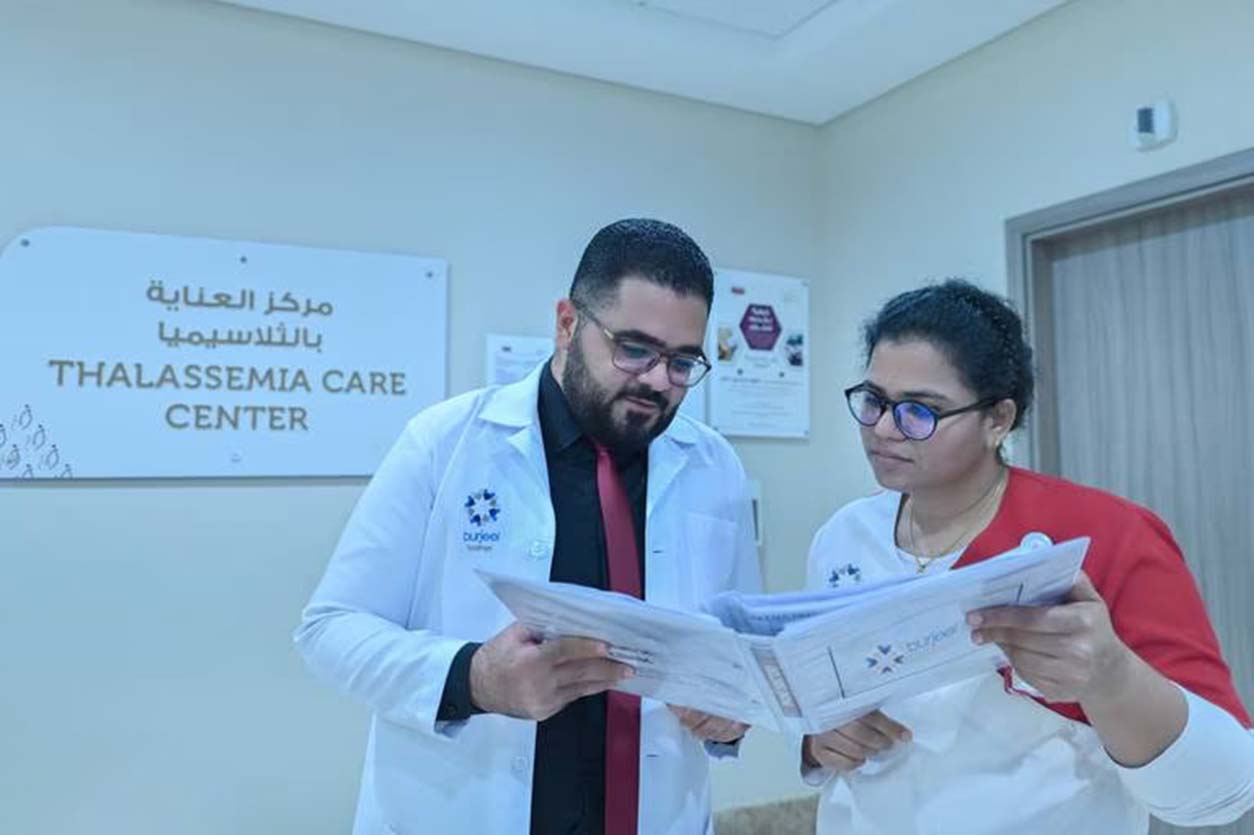Abu Dhabi’s Burjeel Medical City will assess the effectiveness and safety of Mitapivat, a drug that has shown promise in treating the blood disorder The launch of clinical trials in Abu Dhabi to find new treatments for an inherited blood disorder has been described as an opportunity to greatly reduce the burden of regular transfusions and improve the quality of life of patients.
Burjeel Medical City will assess the effectiveness and safety of Mitapivat, a drug that has shown promise as a treatment for thalassaemia, one of the most common genetic illnesses in the UAE. It occurs when the body doesn’t make enough of a protein called haemoglobin. Severe cases require frequent blood transfusions. Stem cell or bone marrow transplants are the only current treatments to cure thalassaemia. Abu Dhabi will take part in the phase 3 trials, called Energise and Energise-T, which will test Mitapivat’s effectiveness on adults with thalassemia. The Energise study aims to evaluate whether Mitapivat can effectively and safely improve haemoglobin levels in patients who do not require regular transfusions. It aims to evaluate whether the same drug can reduce the need for transfusions in patients who regularly receive new blood.
“The Energise-T study is looking at patients who we call transfusion-dependent anaemic,” said Dr Khaled Musallam, group chief research officer of Burjeel Holdings.
“This means that they have a severe form of anaemia that requires them to take blood from external sources almost on a monthly basis for the rest of their lives.”
The primary goal of the Energise-T trial is to reduce the need for transfusions by at least 50 per cent.
“This will have great implications, if we’re able to do that, because not only will it decrease the transfusion demand but it could improve quality of life,” he said.
“Also the transfusions that patients get are from outside sources, so they have a lot of extra iron that the body cannot get rid of, which increases the levels of toxic iron that accumulates in the heart and the liver and can cause severe organ damage and death.
“So, we are not only saving them from transfusions but also from the side effects of long life transfusions.”
Preventive measures remain key
Thalassaemia tends to be more common in people of Middle Eastern, African, Mediterranean and South, South-East or East Asian descent. Consanguineous marriages often contribute to higher rates of thalassaemia in parts of the Middle East as the couple are more likely to have similar genes, increasing the likelihood of them passing it on to their children. There are more than 2,000 patients with thalassaemia in the UAE. It is mandatory for couples to be screened for the condition before marriage, although there is no law that bars them from marrying if they are found to be carriers. Early intervention is required, said Saeed Al Awadhi, a thalassaemia patient and a member of the board of directors of the Thalassaemia International Federation and the Emirates Thalassaemia Society.
“It is right before a couple’s wedding date and after they have made all the preparations for marriage — by then they would have fallen in love, made commitments and plans, so nothing would stop them from getting married,” he said.
Read Full Story: TheNationalNews


